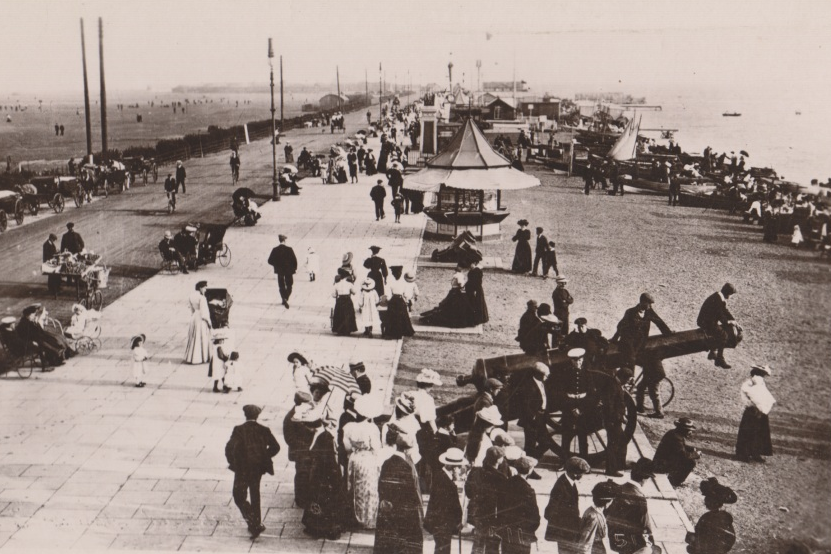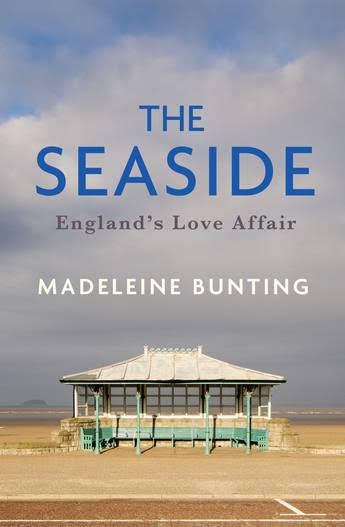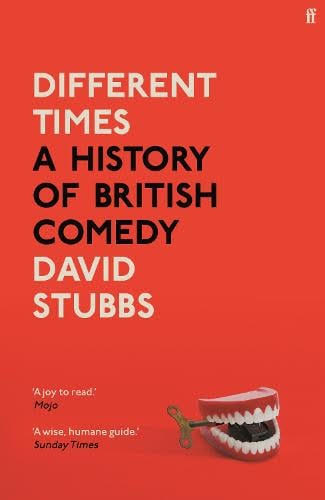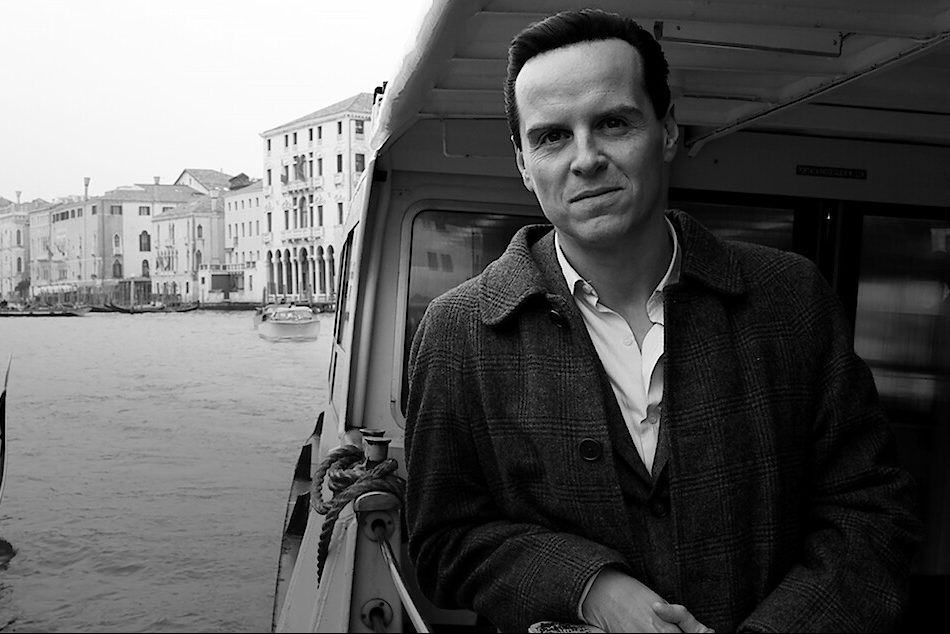
Reviewer COLIN STEELE looks at two books that reflect on the political, social and cultural conditions, past and present, in Britain.
AN initial perusal of the titles of Madeleine Bunting’s “The Seaside: England’s Love Affair” and “Different Times. The History of British Comedy” by David Stubbs would seem fairly straightforward as to their content.
Both, however, have a significant textual undercurrent, reflecting on the political, social and cultural conditions, past and present, in Britain.

Award-winning author Madeleine Bunting takes a trip clockwise around the coast of England from Scarborough to Blackpool covering 40 resorts to reflect on the changing history of the English seaside, from their boom times to contemporary plight.
Golden memories of holidays are juxtaposed with a searing analysis of the current decay of seaside towns reflecting growing inequality, failing public services and a crisis in accessible housing, aggravated by Airbnb short-term lets.
England’s great holiday resorts began in the early 18th century based on the popularity of spas, but with the advent of train travel in the 19th century bringing workers from industrial towns for summer holidays, seaside resorts such as Margate, Southend, Morecambe and Blackpool boomed.
That boom lasted until the 1960s when overseas package holidays, offering guaranteed sunshine, meant “Blackpool moved lock, stock and barrel to Benidorm”.
It is difficult to believe now that Frank Sinatra gave a concert in Blackpool or that Coco Chanel landed her private plane on the beach at Morecambe for a visit. Brits are now more likely to go to Cancún than Clacton.
Bunting explores “ghosts of a better time” when seaside resorts were, “places of pleasure, entertainment, fantasy, magic and adventure”. Now, fast-food outlets, tattoo parlours, charity shops and amusement arcades abound.
Promenade hotels, now often house the unemployed, refugees and those on low-incomes. In “Rick Stein’s Padstow” , where there are three Michelin-starred restaurants, very few of the staff can afford to live in the town. Bunting writes “Padstow has become akin to a colony… for rich Londoners”.
Life expectancy is lower in seaside resorts than the rest of Britain, mental and general health needs are worse, while educational attainment is low and personal debt levels are high.
In Scarborough, where Bunting starts her journey, the suicide rate is 61 per cent higher than the national average, while Torbay tops the suicide rate in Britain. Brighton has the highest percentage of 15-year-olds who smoke. Blackpool has the highest rate of hospital admissions for alcohol-related conditions and drug abuse.
Now the towns “serve as a metaphor for Englishness… [its] decay, its stoicism”. Bunting blames “entrenched Conservative complacency”, with the decline of the resorts magnifying “the harshness of national policies which assume, manifestly, that some lives don’t matter”. The seaside resorts all had large pro-Brexit majorities.
Bunting superbly juxtaposes past and present, mixing “quintessentially English memories” as “fish and chips, donkey rides, Punch and Judy, the shortcomings of modest, family-run hotels, kiss-me-quick hats, lettered rock and candy floss”, with the citing of YouTube algorithms identifying people watching “vintage Blackpool footage” as the targets for “an advert for independent financial advice from Nigel Farage”.
IT’S no coincidence that “Fawlty Towers” was set in Torquay, which features in David Stubbs’ “Different Times: A History of British Comedy”, another book that uses its subject to explore underlying societal issues although he is much less politically nuanced than Bunting.

Stubbs cites the rise of Boris Johnson as “an indictment of the British overemphasis on humour” and that British comedy, for most of the 20th century, “wasn’t about the human condition, but the white male condition”, viewed from a right-wing perspective.
He sees comedians such as Les Dawson, Morecambe and Wise, Ken Dodd and Bob Monkhouse, providing comedy which “reinforced piss poor Conservatism”, while the “Carry On” films have a “right-wing political subtext”, which seems another long political bow to draw.
Certainly looking backwards, comedy series can be criticised for stereotypes of foreigners, nagging mothers-in-law, the portrayal of women, for example, in the Benny Hill series and gay people.
Stubbs is correct to criticise the occasional racism of Spike Milligan, the implicit racism in it “Ain’t Half Hot Mum” and the explicit racism in “Love Thy Neighbour”. He believes, “Are You Being Served?” “speaks to Britain about Britain, the kind of people we are: sexually repressed, grumpy but not militant, cheeky but not revolutionary”.
Stubbs is happy that comedy has gone from “white bloke” to “woke”. Whatever its flaws, “Different Times” – which covers 70 years of British comedy history – will certainly stimulate, like Bunting, debate on the political and social condition of Britain today.
Who can be trusted?
In a world of spin and confusion, there’s never been a more important time to support independent journalism in Canberra.
If you trust our work online and want to enforce the power of independent voices, I invite you to make a small contribution.
Every dollar of support is invested back into our journalism to help keep citynews.com.au strong and free.
Thank you,
Ian Meikle, editor




Leave a Reply